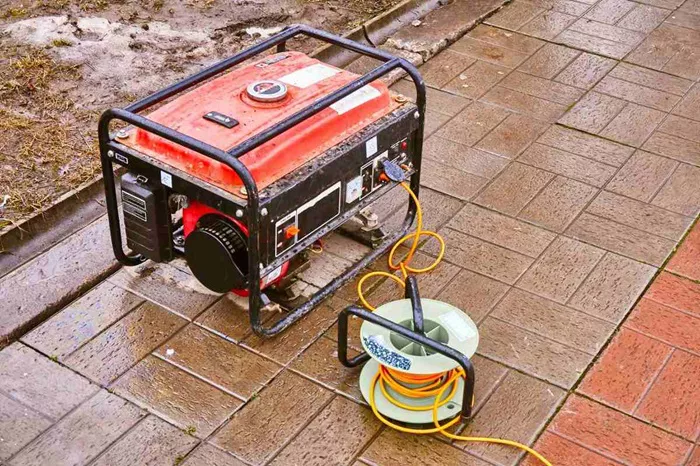Gas generators are essential tools for providing power in various situations, from powering homes during outages to supporting outdoor events. However, when considering their operation, one critical question arises: can a gas generator run in the rain? This article explores the safety and functionality of running a gas generator in wet conditions, examining both the risks and necessary precautions.
Understanding Gas Generators
What is a Gas Generator?
A gas generator is a machine that converts mechanical energy into electrical energy using a gasoline engine. It consists of an engine, a generator (alternator), and various components such as fuel systems and cooling systems. The engine burns gasoline to create mechanical energy, which is then converted into electricity by the alternator. Gas generators are used in various applications, including residential backup power, construction sites, and recreational activities.
How Do Gas Generators Work?
The operation of a gas generator involves several key processes. The engine ignites the gasoline, which drives pistons and crankshafts to produce mechanical energy. This mechanical energy is transferred to the alternator, which converts it into electrical power. The generator’s control panel manages the output voltage and frequency, ensuring a stable power supply. Understanding these components helps in assessing the impact of environmental conditions on the generator’s performance.
Risks of Operating a Gas Generator in the Rain
Electrical Hazards
One of the primary concerns with running a gas generator in the rain is the risk of electrical shock. Water can cause short circuits in the generator’s electrical components, leading to potential electrocution. Electrical shock is a serious hazard, especially if the generator is not properly insulated or protected.
Damage to the Generator
Rain can also cause physical damage to the generator itself. Moisture can corrode metal components, leading to rust and degradation over time. Additionally, rainwater can seep into the fuel system or engine, causing operational issues or even complete failure. Regular exposure to wet conditions can significantly shorten the lifespan of a gas generator.
Reduced Efficiency
Wet conditions can impact the efficiency of a gas generator. Moisture in the air can affect the combustion process, leading to incomplete burning of fuel and reduced power output. The engine may also struggle to operate efficiently if it absorbs water, affecting its overall performance.
Safety Precautions for Operating in the Rain
Using a Generator Shelter
To protect your gas generator from rain, consider using a generator shelter. These shelters are designed to keep the generator dry while allowing adequate ventilation. They are typically made from weather-resistant materials and can be customized to fit your generator’s size and shape. Properly installed shelters can prevent water from reaching the generator’s critical components.
Installing a Ground Fault Circuit Interrupter (GFCI)
A Ground Fault Circuit Interrupter (GFCI) is a device that helps prevent electrical shocks by shutting off the power if it detects a ground fault. Installing a GFCI with your gas generator provides an additional layer of protection against electrical hazards. It is especially important when operating in wet conditions.
Ensuring Proper Ventilation
Proper ventilation is crucial when operating a gas generator, especially in confined or partially enclosed spaces. Adequate airflow helps prevent overheating and ensures that exhaust gases are safely expelled. Even if you are using a shelter, make sure it is designed to allow for proper ventilation.
Regular Maintenance and Inspection
Regular maintenance and inspection of your gas generator are essential for safe operation. Check for signs of wear and tear, corrosion, and moisture damage. Clean and maintain the generator according to the manufacturer’s instructions to ensure its reliability and longevity.
Alternatives to Running a Generator in the Rain
Inverter Generators
Inverter generators are a type of portable generator that is known for their advanced technology and enhanced safety features. They are designed to produce clean, stable power and are often equipped with weather-resistant enclosures. If you frequently need to operate a generator in adverse conditions, consider investing in an inverter generator for added reliability.
see also: TOP 3 Whole Home Generator In 2024
Backup Power Systems
For permanent solutions, consider installing a backup power system such as a whole-house generator or a solar power system. These systems are designed to provide reliable power without the need for frequent refueling or manual operation. They are also built with weather-resistant features to ensure safe operation in various environmental conditions.
Conclusion
Operating a gas generator in the rain presents several risks, including electrical hazards, physical damage, and reduced efficiency. To ensure safe and effective operation, it is crucial to take appropriate precautions, such as using a generator shelter, installing a GFCI, ensuring proper ventilation, and performing regular maintenance. By understanding these risks and implementing safety measures, you can effectively manage your generator’s performance and longevity, even in adverse weather conditions.
FAQs:
How can I protect my gas generator from rain without a shelter?
If a shelter is not available, you can use a waterproof cover designed specifically for generators. Ensure that the cover is breathable to prevent moisture buildup and that it does not obstruct ventilation.
Can I operate my gas generator on a wet surface?
It is not advisable to operate a generator on a wet surface as it increases the risk of electrical shock. Place the generator on a dry, elevated platform to minimize exposure to moisture.
What should I do if my generator gets wet?
If your generator gets wet, turn it off immediately and disconnect it from any power sources. Allow it to dry completely before attempting to start it again. Inspect for any signs of damage or corrosion before use.
Are there specific types of generators that are more resistant to rain?
Inverter generators are generally more resistant to rain due to their weather-resistant enclosures and advanced safety features. They offer better protection against adverse weather conditions compared to standard generators.
Related topics:
- How To Choose Generator For Off-Grid Living
- How To Choose Generator For A 3-Bedroom House
- How To Choose Best Generators For Your Needs

